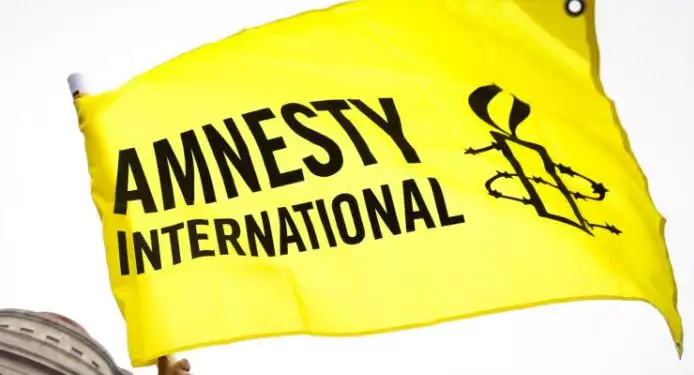- Web Desk
- Feb 24, 2026
Amnesty International accuses Pakistan of mass surveillance
-

- Reuters
- Sep 09, 2025

Amnesty International has accused Pakistan of conducting extensive surveillance on millions of its citizens through phone-tapping and an advanced Chinese-built internet firewall, in what the organizstion describes as one of the most pervasive surveillance systems outside of China.
In a report published on Tuesday, Amnesty International detailed how Pakistan’s surveillance network has expanded significantly, leveraging both Chinese and Western technologies to suppress political dissent and curtail free speech. The system is used to monitor phone conversations, block websites, and censor social media platforms.
Also read: Amnesty International asks Pakistan to do away with tribal jirgas
Pakistan’s media and political freedoms have been increasingly restricted in recent years, particularly following the military’s break from former prime minister Imran Khan in 2022. He was imprisoned, and thousands of his supporters were detained over multiple charges of unrest, destruction and chaos, exacerbating concerns about the state’s growing grip on freedom of expression.
The report highlights the scope of the surveillance: Pakistan’s Lawful Intercept Management System (LIMS) is capable of monitoring at least 4 million phone calls and messages simultaneously. In addition, a firewall system known as WMS 2.0 can intercept up to 2 million active internet sessions. Together, these systems allow Pakistan’s intelligence agencies to monitor communication and block access to websites and social media in real-time.
The number of phones under surveillance is likely higher, as all four major mobile carriers in Pakistan have been ordered to connect to the LIMS, according to Amnesty technologist Jurre van Berge. This extensive monitoring creates a “chilling effect” on the public, deterring people from expressing themselves freely both online and offline, the report said.
Amnesty International’s findings were partially based on a 2024 case brought to the Islamabad High Court (IHC) by Imran Khan’s wife Bushra Bibi. She filed the case after private phone calls of hers were leaked online. In court, defense and intelligence ministries denied involvement in phone tapping, but the telecom regulator confirmed it had ordered mobile companies to install LIMS to be used by “designated agencies.”
Amnesty International said that Pakistan’s technology, interior, and information ministries, as well as the telecom regulator, did not respond to Reuters’ queries regarding the report. However, the organisation claimed that Pakistan has blocked around 650,000 websites and platforms, including YouTube, Facebook, and X (formerly Twitter), with a particular focus on restricting access in regions like Balochistan. There, ongoing internet blackouts have coincided with allegations of military abuses against activists, particularly in Baloch and Pashtun communities.
The firewall, according to the report, is supplied by the Chinese company Geedge Networks, which is linked to state-owned firms in Beijing. Amnesty also traced key components of the firewall’s technology to American, French, and Chinese companies. US-based Niagara Networks provides the hardware, Thales DIS offers software, and servers are sourced from a Chinese state-owned IT firm. Previously, Canada’s Sandvine was involved.
Also read: Russia bans Amnesty International as ‘undesirable’ organisation
Amnesty International also identified the German company Utimaco as the manufacturer of Pakistan’s phone tapping system. This system is deployed through monitoring centers operated by UAE-based Datafusion. Although Datafusion denied creating the phone tapping system, it stated that its products are sold exclusively to law enforcement agencies.
In response to the report, Niagara Networks said that it follows US export regulations, but noted that it does not track the final use of its products. Similarly, AppLogic Networks, which succeeded Sandvine, asserted that it has mechanisms in place to address potential misuse of its technology.




